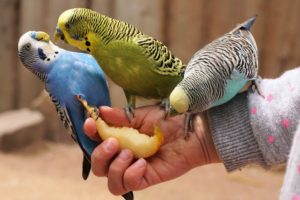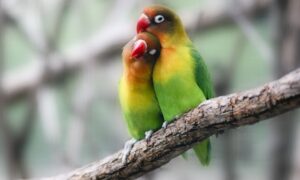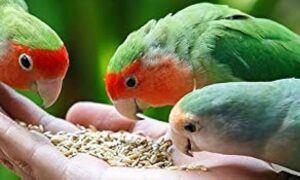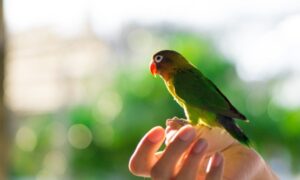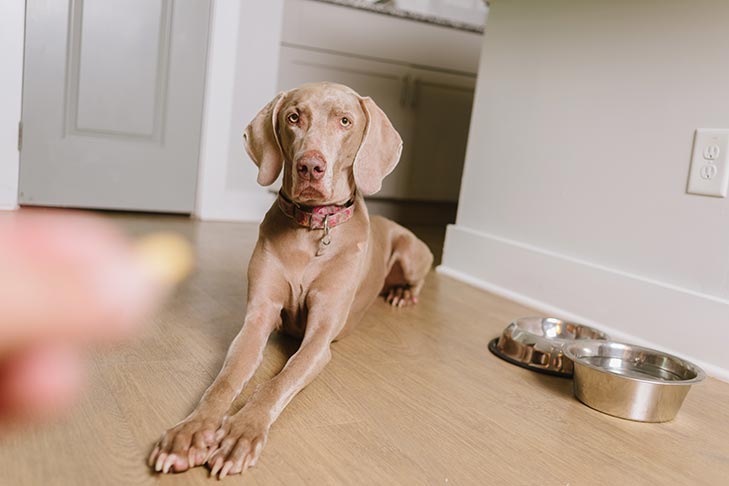Bird Sitters – The Ultimate Guide to Avian Care
Birds make wonderful companions, but their care requires dedication, knowledge, and time. Whether you’re planning a vacation or need assistance with your feathered friend’s daily care, finding a reliable and experienced bird sitter is essential. This comprehensive guide will walk you through everything you need to know about bird sitters and avian care, ensuring your feathered companion receives the best possible attention and care while you’re away.
1. Introduction to Bird Sitters
Owning a bird comes with responsibilities, and sometimes life demands that we find temporary care for our avian friends. Bird sitters are individuals who specialize in providing care and companionship to birds when their owners are unavailable. They play a crucial role in maintaining the health and well-being of birds and offer peace of mind to bird owners.
2. The Importance of Avian Care
Birds are highly intelligent and social creatures that require daily interaction, mental stimulation, and proper nutrition. Neglecting their care can lead to various health issues and behavioral problems. Avian care is essential to ensure the overall well-being of birds and prevent them from becoming stressed or depressed. Bird sitters are trained professionals who understand the unique needs of different bird species and provide the necessary care and attention.
3. Qualities of a Good Bird Sitter
When choosing a bird sitter, it’s important to look for certain qualities that indicate their proficiency in avian care. A good bird sitter should possess the following qualities:
Knowledge of Bird Species
Bird sitters should have a solid understanding of different bird species, their behaviors, and specific care requirements. This knowledge helps them provide appropriate care and ensure the birds’ comfort and safety.
Experience in Avian Care
Experience plays a vital role in providing quality care. An experienced bird sitter will be familiar with common bird behaviors, health issues, and emergency situations. They can quickly identify any potential problems and take appropriate action.
Patience and Understanding
Birds can be sensitive and require patience and understanding. A good bird sitter should be calm, patient, and capable of handling birds with care and respect. They should be attuned to the birds’ needs and understand their body language.
Attention to Detail
Avian care involves paying attention to even the smallest details. A good bird sitter should be meticulous and observant, ensuring that the birds’ environment is clean, safe, and enriched. They should also be vigilant in monitoring the birds’ health and behavior for any changes.
Communication Skills
Effective communication is crucial between the bird sitter and the bird owner. A good bird sitter should be able to provide updates on the birds’ well-being, follow instructions accurately, and maintain open lines of communication with the owners.
4. Finding a Professional Bird Sitter
Finding a professional bird sitter requires some research and careful consideration. Here are some methods to help you find the right bird sitter for your feathered companion:
Recommendations and Referrals
Ask fellow bird owners, avian veterinarians, or bird-related communities for recommendations or referrals. Hearing about others’ positive experiences can be a great starting point in your search for a reliable bird sitter.
Online Platforms and Directories
There are various online platforms and directories that specialize in connecting pet owners with experienced bird sitters. These platforms allow you to browse through profiles, read reviews, and compare services to find the best match for your bird’s needs.
Interviewing Potential Sitters
Once you have shortlisted potential bird sitters, it’s essential to conduct interviews. Ask questions about their experience, knowledge, and how they handle different situations. This will help you assess their suitability and determine if they align with your expectations.
Checking References and Credentials
Request references from previous clients and follow up with them to gain insights into the bird sitter’s reliability and quality of care. Additionally, ensure that the bird sitter has any necessary certifications or training in avian care.
5. Creating a Comfortable Environment for Birds
Birds thrive in an environment that mimics their natural habitat. Here are some important aspects to consider when creating a comfortable environment for your bird:
Suitable Cage and Perches
Provide a spacious cage that allows your bird to move freely and exercise its wings. The cage should be made of bird-safe materials and include perches of various sizes and textures to promote foot health.
Proper Nutrition and Hydration
A balanced diet is crucial for a bird’s well-being. Consult with an avian veterinarian or an experienced bird sitter to determine the appropriate diet for your specific bird species. Additionally, ensure a constant supply of fresh water.
Environmental Enrichment
Birds are intelligent and curious creatures that require mental stimulation. Provide toys, puzzles, and foraging opportunities to keep them engaged and prevent boredom.
Health and Safety Measures
Maintain a clean and hygienic environment by regularly cleaning the cage, food and water dishes, and perches. Keep toxic substances, such as household cleaners and plants, out of your bird’s reach.
6. Establishing a Routine for Avian Care
Birds thrive on routine and benefit from consistent care. Establishing a daily routine ensures that your bird receives proper nutrition, exercise, and social interaction. Consider the following elements when creating an avian care routine:
Feeding Schedule
Establish a feeding schedule that aligns with your bird’s natural feeding habits. Offer a variety of fresh fruits, vegetables, seeds, and pellets to meet their nutritional needs.
Exercise and Playtime
Birds require regular exercise to maintain their physical and mental health. Allocate time for supervised out-of-cage play and provide opportunities for flight or climbing.
Grooming and Hygiene
Regular grooming helps maintain the health and appearance of your bird. Trim their nails, beak, and feathers as needed, and provide bathing opportunities to keep their plumage clean.
Veterinary Visits
Schedule regular check-ups with an avian veterinarian to ensure your bird’s overall health and catch any potential issues early. Follow the veterinarian’s recommendations for vaccinations, parasite control, and preventive care.
7. Building Trust and Bonding with Birds
Establishing a strong bond of trust with your bird is essential for their well-being. Here are some tips for building trust and fostering a positive relationship with your feathered companion:
Respectful Approach
Approach your bird calmly and respectfully, allowing them to become comfortable with your presence. Avoid sudden movements or loud noises that may startle or stress them.
Positive Reinforcement Training
Use positive reinforcement techniques, such as rewards and praises, to encourage desired behaviors. Avoid punishment or negative reinforcement, as it can damage the trust and bond with your bird.
Social Interaction and Stimulation
Birds are social creatures and thrive on social interaction. Spend quality time with your bird, engage in gentle physical contact, and provide opportunities for socializing with other birds or humans.
Recognizing Bird Body Language
Learn to interpret your bird’s body language to understand their needs and emotions. Recognize signs of contentment, stress, fear, or illness, and respond accordingly to ensure their well-being.
8. Handling Emergency Situations
Being prepared for emergency situations is crucial for every bird owner. Familiarize yourself with common bird health issues and know how to respond in case of emergencies. Some important aspects to consider include:
Common Bird Health Issues
Educate yourself about common health issues that birds may encounter, such as respiratory infections, nutritional deficiencies, or injuries. Recognize the symptoms and know when to seek veterinary help.
First Aid and Emergency Response
Have a well-stocked avian first-aid kit readily available, including supplies for wound care, basic medications, and contact information for avian veterinarians. Familiarize yourself with first-aid techniques specific to birds.
Knowing When to Seek Veterinary Help
It’s essential to recognize when a bird’s condition requires immediate veterinary attention. Trust your instincts and seek professional help if you notice severe changes in behavior, appetite, or any signs of distress or injury.
9. Tips for Bird Owners
When entrusting your bird to a sitter, there are a few tips to keep in mind to ensure a smooth experience for both your bird and the sitter:
Providing Detailed Instructions
Provide detailed instructions regarding your bird’s daily routine, diet, any medications, and preferences. Include emergency contacts and relevant information about your bird’s health history.
Leaving Emergency Contacts
In case of any unforeseen circumstances or emergencies, leave emergency contacts with your bird sitter. This ensures that they have a reliable resource to reach out to for guidance or assistance.
Maintaining Communication with the Sitter
Encourage open communication with your bird sitter during your absence. Regular updates on your bird’s well-being and any concerns can help address any issues promptly and maintain peace of mind.
Keeping Up with Avian Care Updates
Stay informed about the latest avian care practices and updates. This allows you to provide your bird sitter with relevant information and ensures your bird receives the most up-to-date care.
10. Conclusion
Bird sitters play a vital role in ensuring the well-being of your feathered friend when you’re unable to be present. Finding a qualified and reliable bird sitter who understands the unique needs of birds is essential. By creating a comfortable environment, establishing a routine, building trust, and being prepared for emergencies, you can provide your bird with the care they deserve. Remember to maintain open communication with your bird sitter and stay involved in your bird’s well-being even when you’re away.
Frequently Asked Questions (FAQs)
- Can bird sitters take care of multiple birds at once?
- Yes, many bird sitters are experienced in handling multiple birds simultaneously. However, it’s important to inform the sitter about the number and species of birds to ensure they can provide adequate care and attention.
- What should I do if my bird is reluctant to interact with the sitter?
- It’s not uncommon for birds to take time to adjust to new people. Allow the bird sitter to spend gradual and supervised time with your bird, using positive reinforcement techniques. Over time, your bird may become more comfortable and develop a bond with the sitter.
- How often should I update the bird sitter about my bird’s well-being?
- The frequency of updates depends on the duration of your absence and the specific needs of your bird. However, providing updates at least once a day is a good practice to ensure any concerns or changes in behavior are addressed promptly.
- Can bird sitters administer medication to my bird if needed?
- Yes, many experienced bird sitters are trained in administering medications to birds. Make sure to provide clear instructions and any necessary medications, along with a demonstration if required.
- Is it necessary to have a backup bird sitter in case of emergencies?
- Having a backup bird sitter is recommended in case of unexpected circumstances or emergencies. It provides an added layer of security and ensures that your bird will receive continuous care and attention.
Read More:Pet Bird Care Guide: Tips for Keeping Your Feathered Friend Happy and Healthy

